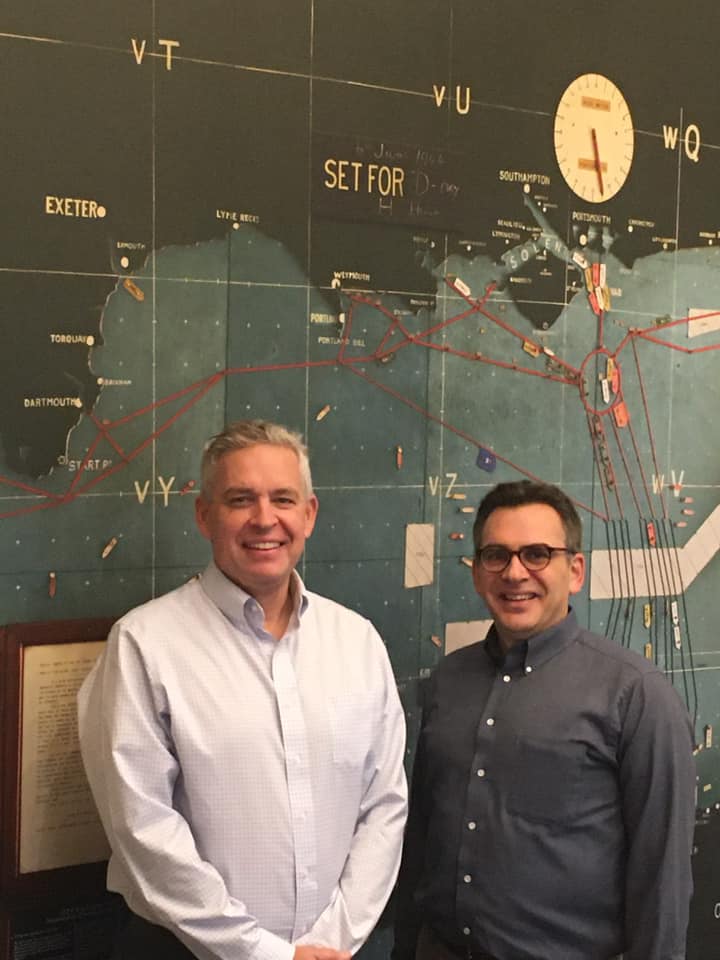
If you go into reading history with an open mind what you’re looking for is to be surprised; you’re looking for things that tell you something you didn’t know.
The liberation of an oppressed people is indeed a noble venture. But as the U.S. learned in Iraq, it’s a complicated relationship between the liberated and their liberators. A BETTER PEACE welcomes William Hitchcock to discuss the lessons that were evident in France in the days following victory in Europe post WWII. Michael Neiberg interviewed Hitchcock at the new U.S. National World War II Museum in New Orleans, where they also discussed some tools of the trade for people who are looking to write history from a different vantage point.

Podcast: Download
Subscribe: Apple Podcasts | Spotify | Amazon Music | Android | Pandora | iHeartRadio | Blubrry | Podchaser | Podcast Index | TuneIn | Deezer | Youtube Music | RSS | Subscribe to A Better Peace: The War Room Podcast
William Hitchcock is the William W. Corcoran Professor of History at the University of Virginia and author of The Bitter Road to Freedom: The Human Cost of Allied Victory in World War II Europe, a Pulitzer Prize nominated book. Michael Neiberg is the Chair of War Studies at the U.S. Army War College. The views expressed in this presentation are those of the speakers and do not necessarily reflect those of the U.S. Army War College, U.S. Army, or Department of Defense.
Photo Description: The Founders Plaza creates an impressive entryway to the National WWII Museum Campaigns of Courage: European and Pacific Theaters building.
Photo Credit: Courtesy of the National WWII Museum
Other releases in the “On Writing” series:
- THE SCHOLAR AND THE STRATEGIST:
SIR HEW STRACHAN
(ON WRITING) - ON WRITING: MILITARY AUTHORS AND THE HARDING PROJECT
- UNDERSTANDING RUSSIAN CULTURE: JADE McGLYNN
(ON WRITING) - CHINA’S SHIFTING HISTORY: STEPHEN PLATT
(ON WRITING) - UNDERSTANDING CHINA THROUGH ITS RECRAFTED PAST: RANA MITTER
(ON WRITING) - WRITING ON A DEADLINE: SHASHANK JOSHI
(ON WRITING) - REAGAN AS THE PEACEMAKER: WILL INBODEN
(ON WRITING) - W.E.B. DU BOIS IN THE WOUNDED WORLD: CHAD WILLIAMS (ON WRITING)
- RUSSIAN IMPERIAL HISTORY-THEN AND NOW: ALEXANDER MIKABERIDZE
(ON WRITING) - TAKING COMMAND: TAMI DAVIS BIDDLE
(ON WRITING)





The thrust of the War Room podcast on the costs of liberation implies that there can be instances where the “collateral damage” is too much. It reminded me of a French lady I met a few years ago who was a young teen in 1940 when Germany invaded France. Her hometown of Nancy was occupied by German Alsatians who all spoke French and were on their best behavior. Her bad memories of the war were of the Allied bombings, both British and U.S., and in 2005 she still retained bitterness over that. Yet in 1944 when Paris was liberated, the local French were deliriously happy and did not begrudge the damage done in the routing of the despised Wehrmacht. Perhaps it depends on the individual’s experiences, and personal losses.
The lady from Nancy met a young American sergeant in Patton’s Third Army in 1945, married him and moved to the U.S. I do not think she became an American citizen, but she did give birth to two. In the end, it seems that a good thing came out of bad times. Maybe that is the most we can hope for in this imperfect world.